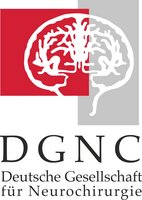Our department is specialized in the surgical treatment of degenerative diseases of the spine (such as herniated discs and stenoses) as well as complex spinal diseases and revision surgery.
COVID-19 –> information and vaccination centre
Spine Surgery
Almost everyone knows back pain. Our specialists in the field of Spine surgery offer gentle and minimally invasive procedures as well as the full range of treatments.
With professional competence, state-of-the-art equipment and comprehensive care, we ensure that each patient receives the best possible personal therapy. It is particularly important to us to treat our patients with gentle and minimally invasive procedures.
We perform intervertebral disc operations under the most modern microscopes with the smallest injury to the skin and soft tissue. Computer-assisted navigation systems are used for increased safety.
Our treatment offer
Degenerative changes of the spinal column
The most common diseases are those resulting from aging and wearing. These are mainly herniated discs and stenoses that occur in the cervical, thoracic, or lumbar spine and can lead to severe pain and paralysis.
If all possibilities of conservative therapy have been exhausted and the pain persists, a minimally invasive or microsurgical intervention should be considered.
If degeneration of the intervertebral disc is advanced, the spine can become unstable. For surgical treatment, we use not only the classic fusion (spondylodesis), but also minimally invasive, dynamic procedures in which residual mobility is preserved (e.g. disc prosthesis).
Tumours of the spinal cord and spinal column
Tumours of the spinal cord (e.g. gliomas, ependymomas), the spinal meninges (meningiomas) and the outgoing nerves (e.g. neurinomas, swannomas) are complex diseases that we treat surgically in our clinic.
State-of-the-art surgical microscopes including fluorescence microscopy and angiography, micro Doppler, intraoperative neuromonitoring (IONM), ultrasound and minimally invasive approaches are used.
Should access through the mouth, chest or abdominal cavity be necessary, we work closely together with our experts for ENT, visceral surgery, and vascular surgery.
Metastases on spinal cord and spine
Metastases from other organs can affect the spine and lead to compression or instability of the spinal cord, nerves, or vertebral column. Here, a combination of stabilising surgery and (partial) removal of the metastases is often necessary.
Stabilising operations include kyphoplasty or vertebroplasty, in which we stabilise the unstable vertebral bodies by injecting cement.
Should radiotherapy or chemotherapy be necessary after the operation, we plan the best possible adjuvent therapy together with oncologists and radiotherapists in the interdisciplinary tumour board.
Infections, malformations, complex diseases
We have profound expertise in the therapy of
- Infections (spondylodiscitis, spinal empyema)
- Congenital malformations (spina bifida, tethered cord syndrome, split cord-syndrom, idiopathic myelonherniation)
- Vascular diseases (dural AV fistulas, cavernomas, AV angiomas)
- Injuries
In addition, we treat very complex spinal column and spinal cord cases and patients who have already undergone surgery.
Prof. Dr. med. Michael Stoffel is a recognized expert in spine surgery and holds additional qualifications such as
- "Spinal Neurosurgery" of the German Society of Neurosurgery (DGNC)
- Master-Certificate of the German Spine Society (DWG)
- Excellence-Certificate of the German Spine Society (DWG)
We work closely together with the physicians and therapists in the inpatient and outpatient sector and are available to you as contact partners throughout the entire treatment process.
We would be pleased to advise you in a personal consultation and discuss with you in detail your present clinical picture, our therapeutic recommendations, and respective surgical options.


